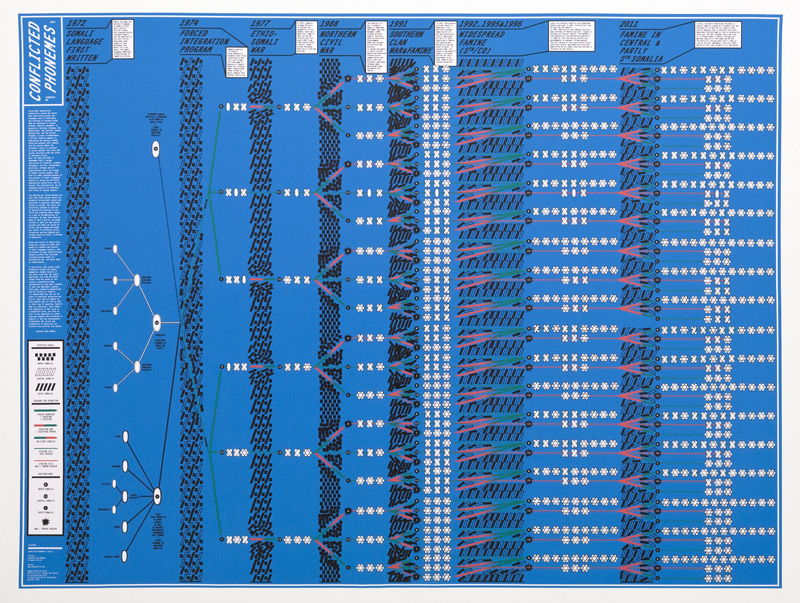
Twenty-first century Shibboleth: Language analysis for the determination of origin of asylum seekers (LADO)
G08, 185 Pelham St
Carlton, VIC
This event explores the use of language analysis for the determination of origin of asylum seekers (LADO) and the politics of forensic listening.
The evening will commence with Lawrence Abu Hamdan’s Freedom of Speech Itself (2012), an audio-documentary / composition (and companion piece to Conflicted Phonemes) concerned with the history and contemporary application of forensic speech analysis voice-prints, focusing on the UK’s controversial use of voice analysis to determine the origins and authenticity of asylum seekers’ accents. Here, Testimonies from lawyers, phonetic experts, asylum seekers and Home Office officials reveal the geo-politics of accents and the practice of listening that led to shocking stories of wrongful deportations. When combined with the experimental audio composition and appropriated radiophonic techniques these interviews are designed to question the fundamental ways in which we speak and listen.
Following this, Mehera San Roque will speak to the Australian context: the use of voice and voice recordings in forensic contexts, and how controversial forensic techniques like LADO are often pioneered at the border.
Finally, Tim McNamara, will present his award-winning research on LADO and how its controversial use, both in Australia and elsewhere, speaks to the social and political dimensions both of language itself.
Artists
"I despise anyone who says that art is about asking questions, and not providing answers. You hear that pretty much every day in our profession. Artists who repeat this statement think of this as a radical act. But what if art's radicality is actually about art being an engine for truth production? I'm not talking about the same forms of truth production in science or law, since science is totally different to law and each represents two different models for telling the truth. In forensics, science and law meet in some weird space. In art, you can borrow from the ways that science and law tell the truth in order to come up with the means by which art can also speak it."